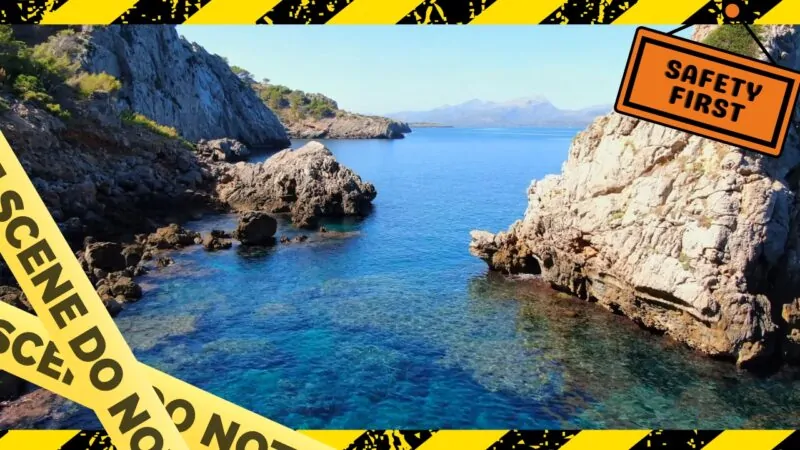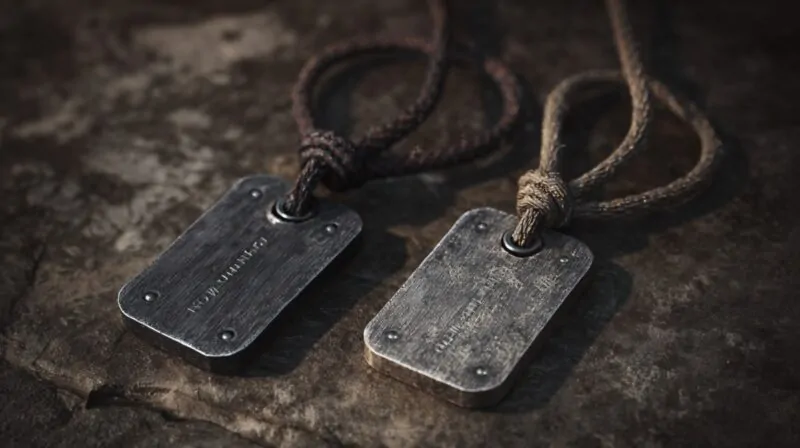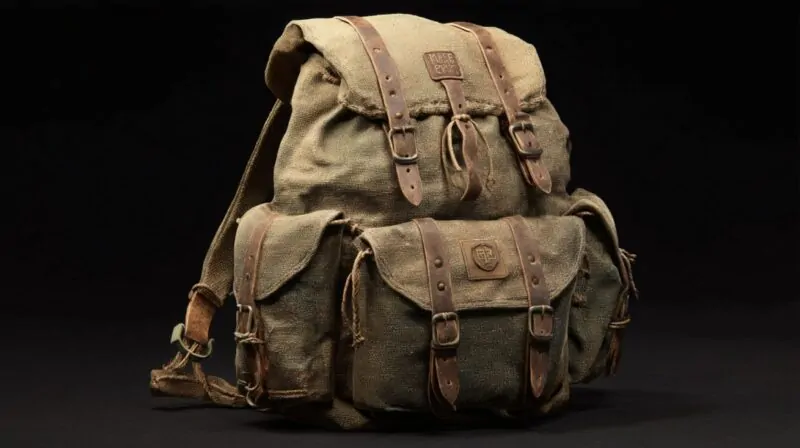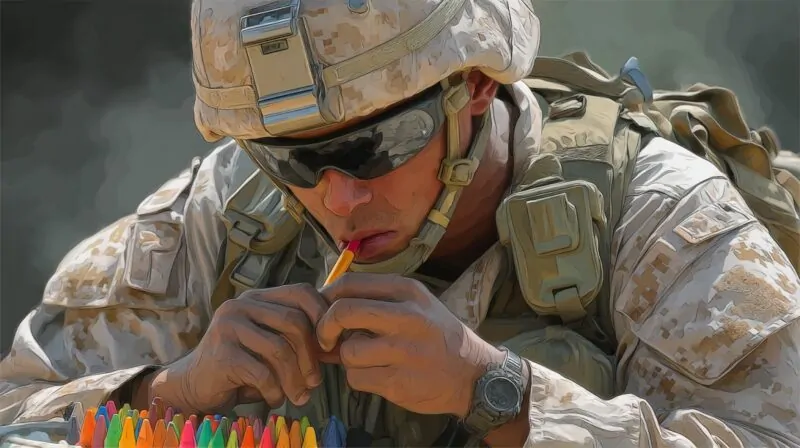Mallorca, the largest of Spain’s Balearic Islands, is a Mediterranean gem known for its golden beaches, picturesque towns, vibrant nightlife, and breathtaking natural beauty.
Each year, millions of travelers flock to Mallorca to enjoy its attractions, from luxurious resorts and hidden coves to historic spots and scenic hiking trails.
However, when traveling to any destination, safety is a priority, and many visitors often wonder: Is Mallorca safe to visit?
To answer this question properly, I want to provide you with all the relevant data regarding safety on the island.
What Does Crime Rate Say, Is Mallorca Safe?
Mallorca, recognized as a popular tourist destination, is as a safe place to live and visit, especially when compared to to many major European tourist destinations..
To answer the question “Is Mallorca safe?” fully, we need to talk about crime rates and safety.
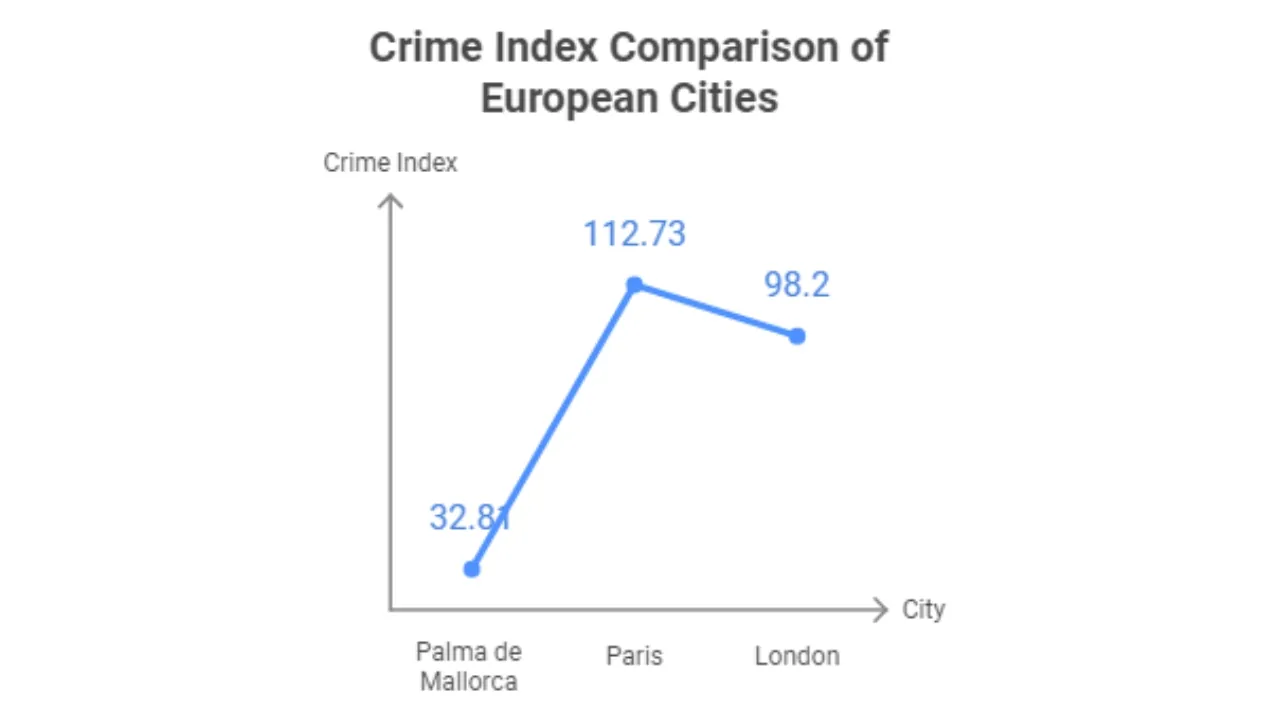
Local police warn that petty theft and pickpocketing rises during tourist season, especially in busy areas frequented by tourists such as:
- Airports
- Markets
- Hotel lobbies
Visitors are encouraged to stay vigilant, particularly in crowded spaces where such crimes are more likely.
The most common crimes tourists might encounter include theft of personal belongings, especially:
- Smartphones
- Wallets
- Purses
Travelers can reduce the risk of victimization by securely storing their valuables and staying mindful of their surroundings.
In 2024, authorities and individuals took significant steps to enhance safety. Since April, local police arrested 100 individuals to make tourists safe from scams.
Taking simple actions, such as avoiding the display of expensive items, carrying only essential items for the day, and monitoring personal belongings, greatly lowers the risk of theft.
Despite these challenges, Mallorca is overwhelmingly safe for tourists, but adopting these preventive habits is key to having a trouble-free trip.
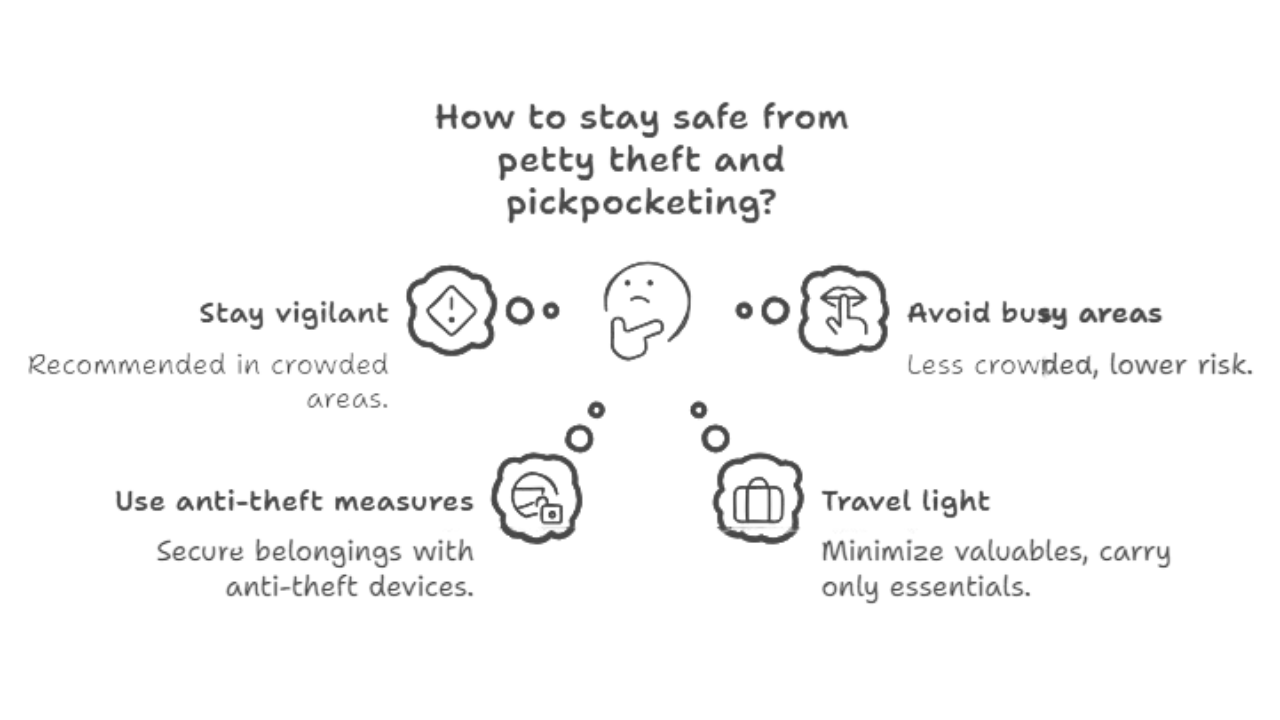
Neighborhoods to Be Cautious About
While most of Mallorca is safe for visitors, there are a few neighborhoods where crime rates are higher, and it is advised to exercise caution.
Son Banya, for example, has a reputation for drug distribution and should generally be avoided by tourists, while La Soledat Nord and El Rafal Nou have higher rates of theft and crime.
These areas, though not frequented by tourists, are worth being aware of for those exploring beyond the popular tourist zones.
In contrast, popular tourist destinations such as Magaluf and El Arenal pose different risks. These areas are known for their nightlife and party atmosphere, which can attract pickpockets and result in risky behavior by intoxicated individuals.
In the case of Magaluf, we can see some positive changes that will certainly make it much safer in the future.
Travelers visiting these areas for nightlife should be particularly cautious about their belongings and avoid becoming too inebriated, as this can make them more vulnerable to theft or other crimes.
During daylight, Palma’s safety index is exceptionally high at 80.49, indicating that most areas are safe to walk around. However, this figure drops to 59.24 at night, meaning caution should be exercised when exploring after dark, particularly in less crowded or unfamiliar areas.
For ladies who are traveling on their own, and who are wondering is Mallorca safe, Palma de Mallorca is generally considered a safe place, according to Travelladies:
| Rating | Source |
|---|---|
| 4.5 | Based on 9 experiences from female travelers |
| 4.5 | Based on crime data |
| 3.9 | Based on 3 experiences from local women |
Interesting Facts: In the last few years, the locals are protesting against the constant increase of tourists.
Driving and Road Safety
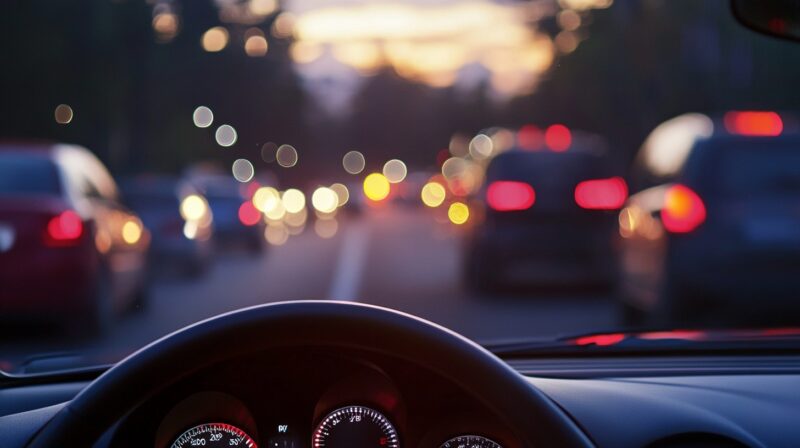
Driving in Mallorca offers the chance to explore beautiful landscapes, but it also presents certain challenges.
The island’s road network includes narrow, winding roads, especially in rural or mountainous regions like the MA-10.
The route is known for its sharp hairpin turns and blind corners, which can be difficult to navigate for inexperienced drivers.
While driving around the island is generally safe, tourists should take care when traversing these more demanding roads.
Weather conditions can also affect driving safety. During the rainy season, roads may become slippery, and poor weather can increase the risk of landslides and rockfalls, particularly in mountainous areas.
Visitors planning to drive should ensure they have a reliable vehicle, and understand the local driving regulations, which are the following:
| Category | Description |
|---|---|
| Traffic Laws | Always use sidelights to indicate when changing lanes or overtaking |
| Speed limit: 50 km/h in built-up areas | |
| Speed limit: 90 km/h on secondary roads | |
| Speed limit: 120 km/h on motorways | |
| General Guidelines | Always wear seatbelts |
| Driving under the influence of alcohol is strictly prohibited | |
| You must carry your driver’s license, vehicle registration, and insurance documents | |
| Renting a Car | You must be at least 21 years old and have had a valid driver’s license for 2 years |
| A credit card is required for rental | |
| All drivers must be registered in the rental contract | |
| Rental car insurance (basic coverage) is mandatory |
Accident rates on the island were always relatively low, but vigilance is key, particularly in rural areas where road conditions vary.
Visitors should take their time when driving, avoid speeding, and be cautious around bends and hills where visibility may be reduced.
Interesting Facts: In May 2024, there was a clash between locals and immigrants, namely Algerians.
Natural Hazards
Mallorca’s natural beauty offers many outdoor activities, but visitors should be aware of certain natural hazards. But is Mallorca safe in this regard?
- High temperatures
- Challenging terrain
- Lack of water
It is crucial to be well-prepared when embarking on a hike, especially during the hotter months. Carrying plenty of water, wearing proper footwear, and knowing your route can help mitigate risks.
For beachgoers, water safety is another concern. While Mallorca’s beaches are generally safe, some areas, such as Portocolom Beach, have been flagged for poor water quality.
Furthermore, jellyfish, including the dangerous Portuguese Man o’ War, can occasionally be present, posing a threat to swimmers.
Always check local warnings before swimming and heed lifeguard instructions.
Wildlife, though not usually dangerous, can also present risks. The pine processionary caterpillar is a common sight in warmer months, and its hairs can cause skin irritation.
Scorpions and venomous snakes, though rare, can be encountered, especially in rural areas. Visitors should remain cautious when exploring the countryside.
COVID-19 Precautions
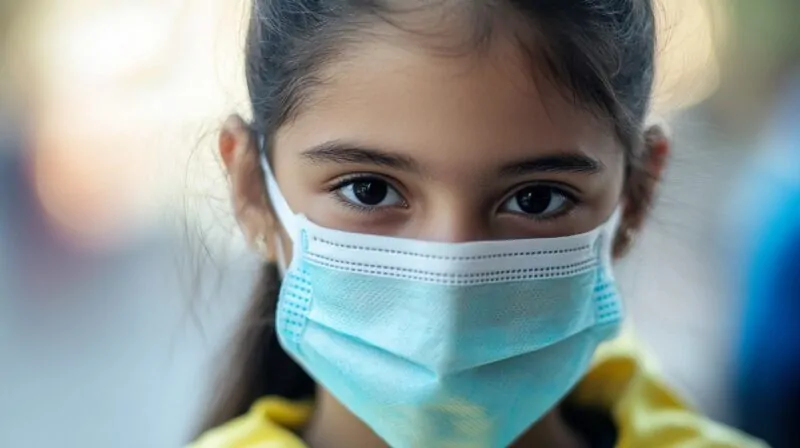
Mallorca has implemented several safety measures to ensure the well-being of its visitors during COVID-19.
Currently, travelers are required to complete Health Control Forms and provide proof of vaccination or a negative COVID-19 test upon entry.
Masks are still mandatory on public transport and in certain indoor settings to help prevent the spread of the virus.
With nearly 90% of Spain’s population fully vaccinated, as Elpais writes, infection rates on the island remain lower compared to many other regions. The high vaccination rate provides some reassurance to visitors, but it is still important to follow local health guidelines to minimize risks.
Tourists are encouraged to practice good hygiene, wear masks in crowded places, and spend as much time as possible outdoors, where transmission risks are lower.
Visitors should stay informed about the latest COVID-19 regulations, as they can change based on the current health situation.
Interesting Fact: From May 2023 to May 2024, the Balearic Islands, including Ibiza and Mallorca, welcomed 14.7 million tourists.
Health and Travel Insurance
Before traveling, you need to make sure Mallorca is safe for you regarding your health.
Visitors need to ensure they are in good health and up to date with any routine vaccinations.
Pre-travel health checks can help prevent issues while on vacation and provide peace of mind.
- Chickenpox (Varicella)
- Diphtheria-Tetanus-Pertussis
- Flu (influenza)
- Measles-Mumps-Rubella (MMR)
- Polio
- Shingles
Securing comprehensive travel insurance is highly recommended, as it is mandatory for visitors to the Schengen area. It is an insurance that should cover emergency medical care, with a minimum coverage of €30,000.
Travel insurance not only provides coverage for medical emergencies but also protects against other unforeseen issues, such as trip cancellations or lost luggage.
Having this safety net ensures that travelers can enjoy their holiday without worrying about the potential financial burden of accidents or illnesses.
Taking these steps before departure helps mitigate any health or financial risks that may arise during a trip, ensuring that visitors can focus on enjoying their time in Mallorca.
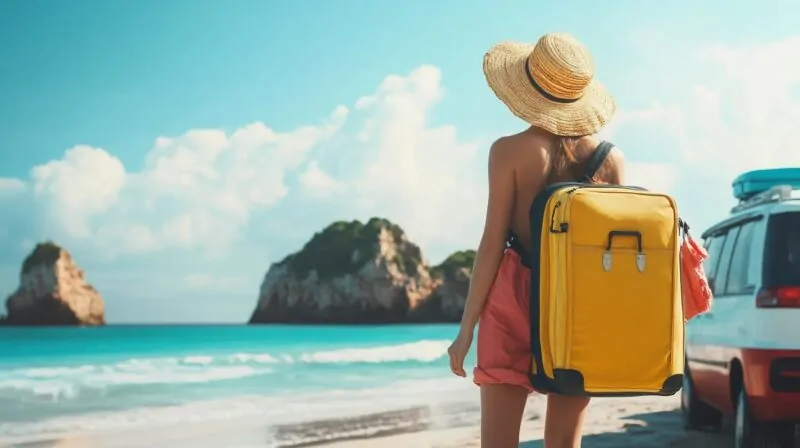
Methodology
The article on Mallorca’s safety statistics combines official crime reports, crowd-sourced platforms, and expert analysis. Researchers sourced crime data from reliable platforms like Numbeo, which aggregates real-time user-reported crime statistics from residents and travelers.
They cross-referenced the data with official local police reports, focusing on the Palma de Mallorca area, to ensure accuracy and comprehensiveness. The analysis identifies relevant safety concerns, such as the increase in petty theft and pickpocketing during peak tourist seasons.
Additionally, researchers gathered qualitative data from travel reviews and platforms like Travelladies, offering firsthand accounts from female travelers. Local authorities contributed insights on recent police activities and crime prevention efforts.
To evaluate road safety and natural hazards, the team reviewed official traffic regulations and accident data, while local experts shared recommendations for navigating challenging areas such as rural roads and mountainous regions.
By combining quantitative data and experiential reports, the team delivered a comprehensive analysis of Mallorca’s safety landscape.
The Bottom Line
The answer to the question “is Mallorca safe?” is that it remains one of the safest and most welcoming destinations in the Mediterranean, offering a range of experiences for all types of travelers.
While no place is without its risks, the island’s low crime rates, well-developed infrastructure, and accessible healthcare system make it a secure and enjoyable location for both first-time visitors and seasoned travelers.
Ultimately, with a little preparation and mindfulness, Mallorca offers not only safety but also an unforgettable travel experience.
Sources
- Numbeo – Crime in Palma de Mallorca, Spain
- Daily Mail – Young couple dip into elderly woman’s backpack in Mallorca as local police warn tourists of skilled pickpockets posing as fellow holidaymakers
- MajorcaDailyBulletin – 100 arrests for theft in Palma since April
- The Sun – Pitched battles erupt in Majorca as rival gangs clash & swathes of Palma deemed ‘no-go zones’ amid anti-tourist protests
- The National – Magaluf: A place which is changing for the better
- Travel Ladies – Is Palma Safe for Solo Female Travelers?
- Euro News – Thousands in Mallorca demand ‘less tourism, more life’ in pushback against overtourism
- ABC Mallorca – Sa Calobra
- MDPI – The Interconnection between Climate Cycles and Geohazards in Urban Areas of the Tourist Island of Mallorca, Spain
- Spain Info – Driving. How do you drive in Spain?
- Research Gate – Road accidents and tourism
- Daily Mail – Open war between racial groups
- Independent – Mallorca town hit with water restrictions to avoid ‘extreme emergency situation’
- National Ocean Service – What is a Portuguese Man o’ War?
- Koppert – Life cycle and appearance of Pine processionary moth
- VisaGuide – Spain Health Control Form (FCS)
- El Pais – Spain nears its vaccination limit
- CentreForAviation – Spain and the Balearics
- CDC – Traveler’s health Spain
- Schengen – AXA Schengen Travel Insurance
Related Posts:
- Is Ibiza Safe in 2025? What You Need to Know Before You Go
- What Happens When Safety Protocols Fail in the…
- Public Safety UAVs - Eyes in the Sky for First Responders
- How to Open a Gun Safe - A Complete Step-by-Step Guide
- Staying Safe in the US - A Guide to Essential…
- The US Incarceration Rates in 2025 - US Crime,…

